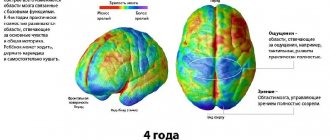Updated July 24, 2021 910 Author: Dmitry Petrov
Hello, dear readers of the KtoNaNovenkogo.ru blog. Sometimes we see a child walking home from school and throwing a candy wrapper past the trash can.
Or someone talks very loudly on public transport and everyone around can hear what kind of drama happened with his girlfriend.
And it happens that it is difficult for a person to communicate with others, he cannot at least say: “Hello.”
These are all examples of how someone has not fully gone through and mastered all the stages of socialization. What is it, what is the sequence here, what types of socialization is divided into - let's figure it out.
The concept of personality development
The process of personality formation, which begins in the first months of birth, continues almost continuously throughout life. An individual gains experience in communication, learns to adapt to the situation, realizes his uniqueness and tries to show it to others. Over time, there is a need to stand out from the crowd.
Note! Often the need to stand out in society and be useful to it occurs at the level of contradiction.
Later, the individual wants to be useful to others, to contribute to the development of society. All this is the formation of personality, which is characterized by different stages and phases. When describing how personality is formed, modern sources of information adhere to long-established definitions of these stages and phases of personality formation. They include information about how an individual behaves almost from birth, and what impact various factors have on his personal development.
Who is a formed personality
Psychology has proven that a person is not born, but rather becomes. However, the question of who can be considered a person remains open. There is still no single list of requirements, description of properties or classification of criteria. But some features characteristic of a formed personality can be identified.
- Activity. It implies voluntary activity, the ability to manage one’s life in any situation.
- Subjectivity. It assumes control over one’s life and responsibility for choice, that is, the role of the author of life.
- Bias. The ability to evaluate the surrounding reality, accept something or not, that is, not be indifferent to the world and your life.
- Mindfulness. The ability to express oneself in public forms.
Worldview
Worldview is a set of views, ideas, assessments that determine a person’s attitude to the world around him and act as regulators of his behavior.
Types of worldview:
Worldview type
| Description | |
| Ordinary | It is based on a person’s direct life experience. |
| Mythological | Denies the possibility of comprehending and explaining the world. Relies on legends about the structure of the world without attempts to critically comprehend or verify them. |
| Religious | Relies on religious dogma. |
| Philosophical | Explains reality from the perspective of reason. Critically evaluates any information and builds a system of views based on logic. |
| Scientific | Based on scientific achievements. |
Formation of human personality
The process of personality formation is the emergence in an individual of historically formed human qualities. What quality will manifest itself in a person depends on several factors.
Personality formation factors:
Education in childhood and self-education in adulthood
The role of the family in the formation of personality cannot be overestimated. The educational function is the main function of the social institution of the family.
In full-fledged and prosperous families, harmoniously developed individuals grow up. Unresolved childhood problems become factors that prevent a person from developing. The child learns to be a member of society by listening and copying his parents.
Children copy the styles and patterns of behavior, roles, strategies, habitual types of thinking and expressions of feelings of significant adults. Values and ideals, positive and negative (for example, anxiety and suspiciousness) qualities are unconsciously adopted from parents.
Later, parental instructions turn into an “inner voice”, and such moral qualities as conscience, honor, morality and others are formed (or not formed). Becoming an adult, a person uses the knowledge given by his parents about socially approved and acceptable behavior and develops new ones.
Genetics
People are different because no one person has the same set of genes. A person receives some of the characteristics and components of individuality at birth with a set of genes.
The child experiences and is able to express basic emotions from the first days of life; temperament is determined from birth. Regarding the genetic factor, the role of the family in the formation of personality is no less important than in education. Some mental illnesses are genetically transmitted.
Social influence of reference (significant) groups, relatives, friends, colleagues and other people from the close environment.
Life experience
Every event that happens to a person affects his inner world, especially if it is a significant incident. Individual experiences can change the course and direction of life. A person develops willpower, character, develops abilities, finds or loses motivation under the influence of events that have happened in his life.
Mentality and culture
The mentality is influenced by the environment and climate in which representatives of a particular nationality live. Mentality can be defined as the “character” of a people. For example, in southern countries, people are usually active, emotional, and temperamental.
Culture, moral values and morality prevalent in society are instilled in people from birth and guide the process of personality formation. In some cultures, people behave more freely, naturally and casually, while in others, restraint is cultivated, and the need to strictly adhere to the rules of behavior.
Personality formation factors influence it whenever a person finds himself in a new sociocultural environment. The formation of a personality, in essence, is a series of a person’s entry into a new social community and the result of staying in it. How individuality is formed and manifests itself in a particular environment depends on the success of the three phases of development.
Phases of personality development:
- Adaptation. The formation of personality occurs due to its acceptance of norms and forms of activity in a social community. The individual strives and to some extent becomes the same as all other people.
- Personalization. At the second stage, a person, realizing that he is “like everyone else,” searches, finds and shows his individual characteristics, actively strives for personalization.
- Integration. This phase determines not only the formation of personality, but also the development of the society in which a person operates. An individual must successfully harmonize his individuality with society and demonstrate those unique distinctive qualities that are useful for people. By benefiting society, a person develops.
If these stages of personality development are not completed, disintegration occurs and the person is not accepted by society. He is either forced out, or he himself isolates himself from people. The formation of personality during disintegration stops and can be reversed. If a person returns to earlier stages of his development, his degradation occurs.
Factors that influence the development of personality
This:
- Education in childhood and self-education in adulthood. It is quite difficult to overestimate the importance of family in the development of personality. The educational function can be considered the main task of the social institution of the social unit - the family. As a rule, harmoniously developed children grow up in prosperous and full-fledged families. It is worth noting that the problems that a child encountered in childhood are like baggage that in the future prevents a person from fully developing. Every child copies the behavior of their parents and learns to be a full member of society. It is worth noting that children at an unconscious level copy the negative and positive qualities of their parents, values and ideals; we should also not forget about the usual types of thinking, strategies, behavior and lifestyles. Over time, parental instructions are transformed into an “inner voice”, and moral qualities such as morality, honor, conscience and others are actively formed. In the process of growing up, a person is guided by the knowledge he received from his parents.
- Genetics. Each person is unique, and all because the same combination of genes is not found. A person acquires some of the components and characteristics of individuality at birth. Temperament is already determined from birth; a newborn can not only experience, but also express basic emotions. It is worth noting that family genetics is no less important than family upbringing, since mental illnesses can be transmitted genetically.
- Life experience. Every event that happens in a person’s life affects his inner world, especially when it comes to significant events. Life experiences can transform or modify the direction or course of life. A person finds or loses motivation as a result of experiences, develops his abilities, develops character and willpower.
- Culture and mentality. The mentality is influenced by the climate and environment in which representatives of a certain nationality live. In short, mentality can be described as “the character of the people.” For example, residents of warm countries are distinguished by their temperament, emotionality and activity. Morality, moral values and culture, which are widespread in society, are instilled in every person from birth and guide the process of personality development. For example, representatives of one culture are more reserved and forced to adhere to rules of behavior, while others may behave more freely, casually and naturally. Factors in the development of personality influence it every time a person is in a new sociocultural environment. Essentially, its formation is a series of entries into new social communities.
This is interesting: what is degradation?
Stages of personality formation
These include:
- Adaptation - this phenomenon implies the desire of each individual to some extent become the same as the rest of the representatives of his environment. The process of personality formation is carried out through its adoption of forms of activity in the social environment.
- The second, no less important stage is called “individualization”. When a person realizes that he is “like everyone else,” he begins to actively seek and demonstrate his individual characteristics in order to achieve personalization.
- Integration - this concept defines not so much the formation of personality, but the development of the society where a person lives. Each individual, in order to interact with society, must harmonize his individuality with it, demonstrate those individual qualities that can be used for the benefit of people. If a person brings benefit to society, then he develops.
To summarize this section, I would like to note that if one of these stages has not been completed, then a phase of disintegration begins, accompanied by the rejection of a person by society. During disintegration, the process of formation stops and can be reversed, which entails degradation.
Goals of self-development and personal growth
Today there are skeptics who claim that self-development is a waste of time. Such thoughts arise in lazy people or individuals without a goal. They live life automatically. They wake up in the morning, then go to work, come back, have dinner and fall asleep to the sound of the TV. It’s much more convenient to live and not think about anything. In this case, you should not complain about your financial situation, personal failures or lack of career growth.
Self-development and personal growth help achieve the following goals:
- Formation of awareness. It begins with the release of an automatic life model. When a person begins to ask himself questions, evaluate from the outside, and draw conclusions. Awareness gradually develops. A person accepts the present and corrects it, rather than living in the past or basking in the hopes of the future. By influencing certain character traits, a person develops and acquires new skills.
- Relevant to the current day. The second target emerges from the first. The search for information leads a person to study various subjects, knowledge, and master new skills. The modern pace of life is fast, interesting and technologically complex. To keep up with the times, keep an eye on the changes that are happening in the world. Everyday work allows a person to keep up with the times. Such skills help you to be a sought-after specialist at work and a good conversationalist.
- Comprehensive development. When pursuing personal growth, don't focus on one topic. Narrow specialization makes a person limited and boring. Be interested in a little bit of everything. You don't have to spend a lot of time for this. Instead of watching TV, look through the news section in the world of culture, science, and technology. Thanks to the accumulated knowledge, you will be able to start a conversation with a stranger and become the life of the party. Comprehensive development helps with employment.
People who engage in self-development achieve goals and understand their purpose in life. At the same time, they pump up other areas: health, proper nutrition, spiritual fulfillment. Personal growth leads to getting rid of bad habits, organization, and improving relationships with loved ones.
Development criteria
From the above, we can highlight the criteria for personality development, or personal growth:
- strengthening subjectivity;
- integrity and integration into the world;
- productivity growth;
- development of mental (spiritual) qualities and abilities.
A characteristic feature of a mature personality is overcoming egocentrism and acquiring a broad identity (the ability to identify oneself with the world, society, situations, nature; a sense of community and understanding).
- In children and adolescents, personality development is assessed according to the characteristics of socialization and reflection.
- In adults - by the ability to self-actualize, the ability to accept responsibility and stand out from society, maintaining a connection with it.
When is a personality type formed?
In the first series, researchers tried to figure out how we become individuals with our own individuality, abilities and worldview.
Psychologist Emily Jones tested whether temperament is determined at six months. Children were shown toys that could surprise or frighten them - and the reaction corresponded to the three main types of temperament that psychologists identify in adults: excitable, calm, alert. This may mean that we are already born with a certain type, and it is this that determines our future personality.
Personality structure
Personality consists of many interconnected components, which define it as a human characteristic. These elements make it clear what a person really is; they completely characterize his ego. Moreover, it is worth noting that they are all strictly individual. No matter how much you look for a person similar to you, you will not be able to find someone completely similar.
In psychology, several defining components of personality are distinguished.
- The first component is directionality. It is the fundamental part of personality from which other components originate. The focus is based on: biosocial needs; attitudes acquired throughout life; various interests. It is understood as a manifestation of interest in any object of activity.
- The second component is ability. A person’s abilities are quite multifaceted and depend only on himself. By developing abilities, a person opens up a huge range of opportunities in various types of activities. Abilities can be divided into three groups: – Abilities that we have at birth: the ability to use speech, breathe, see, etc. – Abilities that we have from birth and develop throughout our lives: intellectual thinking, ways of expressing speech, etc. – Individual characteristics that only some people have and distinguish them from others (they can also be called talents)
- Character (psychotype) is a set of established ways of behaving and reacting to a person. Often a person is judged not by his focus or abilities, but by his character. People with bad character have the most difficulty adapting to society, even despite their well-developed skills.
- Another key element is self-regulation. Self-control is a person’s ability to regulate his actions in any environment, plan various types of tasks, and correct behavior.
A psychologist named Carl Gustav Jung proposed his own model of personality structure, which is completely different from the modern concept. He described it as the interrelation of 3 different and interconnected structures: the personal unconscious, the collective unconscious and the ego.
Ego
This is our awareness of ourselves. It contains the feelings, attitudes and memories that we have acquired, and with the help of them our existence remains conscious. The ego is the basis of all the beginnings of our subsequent actions. With it we can monitor the results of our activities.
Personal unconscious
This has information about conflicts and memories. At some point they were conscious, but at a certain period they became suppressed and long forgotten. Unlike Freud, Jung went further and determined that in the personal unconscious there are such components as complexes. These emotionally charged elements are formed in connection with a certain situation and practically do not appear in the conscious mind. They can be located around any topic and manifest themselves at the most inopportune moment, spending a significant amount of psychic energy. However, complexes can manifest themselves in the conscious mind, sometimes completely changing the behavior of the individual.
He introduced the collective unconscious as the third component of personality. It included a repository of information accumulated by our ancestors over hundreds of thousands of years. Jung said that the collective unconscious has a spiritual human heritage located in our heads. This heritage contains all the feelings, emotions and thoughts that were once present among the population in the past. This component of personality is based on heredity, which is true for the entire population.
Education as a means to the development of individuality
Education is recognized as the main factor in the formation of personality. During the educational process, children actively interact with peers, adults and the environment, and in a different way - they are socialized in society.
Components of education
- A child is an object of education. During the period of socialization, he develops subjective values, establishes a certain vision, worldview, and acquires habits, knowledge, and applied skills.
Note! There is often a tendency to copy the behavior of adults and individuals, since the student is under the constant influence of older people and the environment. Therefore, adults must set an example of correct behavior!
- Adults are the initiators of educational action, but at the same time they themselves are subject to education in various life situations of society.
- Society - a collective - creates conditions for self-affirmation, self-improvement, and satisfaction of aesthetic and moral needs.
- Social environment - affects the quality of the educational process within society, home, school.
Social education as a social institution
How, where and when does the socialization process take place?
An important role is played not only by the innate characteristics of the individual, but also by the environment that has been built around him : parents, distant relatives, friends, classmates, classmates, people with the same circle of interests, work colleagues.
The formation of personality depends on their:
- type of thinking;
- level of development;
- education;
- aesthetic views;
- morality;
- traditions;
- hobbies.
In order for you to find out what moral values another person has, he does not necessarily have to give you a whole lecture about what his position in life is and his attitude towards various aspects of it.
People react to certain things not only verbally. There are different ways to express emotions, approval or contempt. This is how we learn their attitude towards us and our actions even without words, we adopt something, if it is a person that is meaningful to us - we socialize .
That’s why it’s so important to communicate with different people to expand your worldview.
We should not forget that the process of becoming a person in society occurs not only in childhood , but also continues throughout life. More and more new situations provide new experiences.
New conditions influence a person, under which he acquires new knowledge and skills. Adults are also able to rethink the moral standards they previously followed. For example, they get rid of their naive, childish views of the world.
If we look at socialization in a broader sense, we will see that it, in essence, helps to preserve society. The latter is constantly replenished with new members who need to be educated, given basic knowledge, and taught the rules of the hostel. Only under such conditions is its successful functioning possible.
From this we can conclude that socialization has 2 goals :
- Teach the individual to interact with society.
- Replenish society with a new cell so that it continues to prosper.
Genetics and biology
The process of personality formation begins in the womb. It is not worth assuming that if you read Plato to an unborn child, he will grow up to be a thinker. At the stage of biological formation, genetic factors are laid down. Those diseases and pathologies that are transmitted to the baby from parents.
Genetic and biological factors influencing the formation of personality:
- Biochemical features: mental illness, material metabolism.
- Hereditary diseases.
- The lifestyle that the parents led while carrying the child: even the stress of the mother can affect the biochemical and physical development of the fetus.
- Anatomical features.
Genetics and biology are the base from which it all begins. Depending on the environment, upbringing and a number of other factors, a person will behave differently in different conditions. The personality of a disabled person who grows up in the center of a large city will be different from that of a person with the same condition who was born in a village in a newly developing country.
Personality types
One way or another, an adult person is already called a person. But even if he does not have all the signs of a developed personality, he still has some personal manifestations.
Depending on the nature of these manifestations, 4 personality types can be distinguished:
- An integrated person is a fully realized person, capable of self-sufficiency and consistency in his actions. She has decided on her social role, knows how to control her behavior, manage her emotions and achieve her goals.
- A protected person is a person who feels the protection and support of all institutions of society (school, family, state, country) and develops harmoniously in a safe and comfortable environment.
- Passive-dependent is a person who is incapable of making decisions, following the lead of others’ opinions, psychologically suggestible, unable to control emotions and give up his habits.
- Unintegrated - a person who cannot decide on his social role, does not show dynamics in his life cycle and does not strive for recognition or self-affirmation.
Socialization and communication
Communication and socialization help shape a person as an individual. We are social creatures. Offending prisoners in prisons are sent to solitary confinement, where the lack of socialization can drive you crazy. Therefore, communication is also the basis for the formation of a person as an individual.
The first socialization begins with contact with parents and close relatives. Then the circle of communication expands to kindergarten teachers, other children, and random people. By communicating, the individual begins to form feelings, adopt behavior patterns, and find his own “voice” in conversations. The role of society in the process of forming motives, views and worldview as a whole plays a huge role. Even when confidently developing yourself, it is impossible to get rid of the influence of social contacts on your point of view.
Factors of socialization and personality formation go hand in hand when it comes to a person’s mental state. If communication is excluded, then the following happens:
- intelligence develops less well;
- the development of speech skills slows down;
- decreased empathy, feelings do not develop;
- Symptoms of depression, schizophrenia, and other mental illnesses may appear.
So, if you isolate an individual from communication with other people, you can slow down his intellectual, mental and emotional development. Such a person may be dangerous to himself and others and will require long-term treatment.
Man and personality
Concepts such as personality and man have a number of differences. A person is called a person from birth; this is more of a material characteristic. But personality, at its core, is a more complex concept. As a result of human development, his formation as an individual in society occurs.
Personality is the moral side of a person, which implies all the diversity of qualities and values of the individual.
The formation of personal qualities is influenced by family, kindergartens and schools, social circle, interests, financial capabilities and many other factors, which will be discussed in more detail later.
Environment
Determining exactly what is the main factor for personality development is problematic. But the environment and social environment in which a child grows up shapes his habits and views. Changing attitudes that have been instilled since childhood is the most difficult thing to do.
A person is predominantly surrounded by people of the same social status, religion, and mentality. We choose this natural soft segregation on our own, because it is easier to communicate and develop with “our own kind.” Read about relationships in this section. The environment can change under the influence of external circumstances - personal development will also turn in the other direction. It is human nature to adapt to their environment; only a few strive to stand out from it. A few of these units form their own environment and become people capable of changing the world.
The influence of the social environment on development can be seen in the biography of any historically famous person: Mikhail Lomonosov, Adolf Hitler, Steve Jobs and others. But this influence also needs to be considered in conjunction with other circumstances.
At what age does personality development occur?
Psychologists say that a person develops unevenly at different periods of life. Up to a certain age, children actively learn new things, after which their development slows down.
How development changes at different ages:
- In preschool age, the child learns general knowledge from parents and educators, which will serve as the basis for further development;
- At the age of 6-16 years, a child is influenced by all factors in the formation of a full-fledged personality; upbringing and socialization play the main role. Beliefs, personal opinions and outlook on life are formed;
- From 17 to 26 years of age, maximum receptivity to learning, the ability to analyze and draw conclusions are observed. It is at this age that a person receives higher education in the chosen field of activity;
- Between 26 and 30 years, processes slow down, a decline in attention and memory loss are observed;
- By the age of 30-34, a new leap in development may occur, when a person begins to master his chosen profession in practice, his brain is actively working;
- At 35-40 years old, the individual continues to develop according to the same pattern, but at a slower pace;
- After 40 years, the level of thinking, memory and attention decreases.
Note! Age cannot limit personal desire. Some people actively develop from 18 to 25 years old, after which they decline. By the age of 30, some people find their place in life, change jobs and social circles.
Throughout their lives, people grow and gain new knowledge and skills. In pedagogy, the factors of development of a full-fledged personality are the driving forces that contribute to the realization of a person. A successful personality type is not inherited; human development is largely influenced by upbringing and environment.
The main stages of personality development according to A. N. Leontiev
The development of a person’s personality occurs throughout his life, starting from infancy. In this process, the individual develops comprehensively, he develops a certain attitude towards the outside world. A. N. Leontyev formulated the concept of “leading activity,” which determines the development of the child’s psyche, based on what satisfies his needs:
- In the initial period from 2 months to 1 year, the baby needs direct emotional communication with a parent or other adult;
- From 1 year to 3 years, a young child is characterized by objective activity, with the help of which he learns about the world;
- From 3 years old to 6-7 years old, a preschooler is characterized by role-playing games, during which he imitates an adult and tries to be independent.
- A schoolchild from 6-7 years old to 10-11 years old undergoes educational activities where he learns more deeply about the world, and also approaches the desire to be an adult.
Personality formation occurs most actively in children
- A teenager aged 10-11 – 14-15 years old satisfies the need for the company of peers, which is called intimate-personal communication.
- Boys and girls aged 15-17 years begin educational and professional activities, which plays a big role in self-determination.
Is it possible to influence the formation process
The development of a child’s personality is the task of parents; they can influence the formation process. The character of the child and his personal development are influenced by the behavior of the parents, how they talk to him, whether they scold him or not.
From 2 to 7 years old, children begin to interact with peers and teachers. From 7 to 18 years of age, parents continue to raise the child, control his environment so that he grows up to be a full-fledged and educated person.
At a conscious age, a person can independently influence his development, provided that he had the right upbringing. Heredity cannot be changed, but its negative manifestations can be fought, and its positive manifestations can be used to your advantage. His well-being, health and level of intelligence completely depend on a person.
Note! Children with congenital abnormalities and brain disorders develop individually. Health problems can hinder a child's development, even if he grows up in a favorable environment.
: Self-development
If you have gone through all the stages of personal development, you begin to grow because you have goals, plans and a desire to continue to develop.
This stage is long, since personal growth has no time frame. As they say, the sky is the limit and you can never reach it because you don’t know everything for sure.
If self-development is important in your life, never give up and continue to achieve more and more. After all, personal development is a timeless process that helps you maintain work-life balance and remain a happy person, no matter what obstacles you face.
“When you focus on becoming better than you are, you attract better life, love and opportunity to you.” - Germanie Kent










